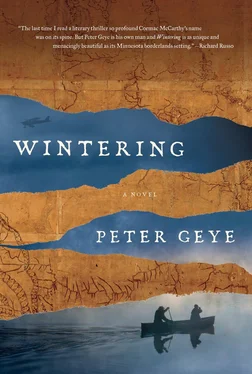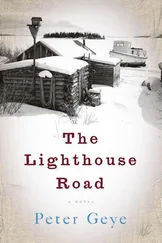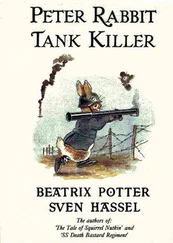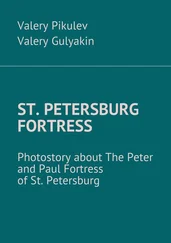He took in the big open room and drew a deep breath. “That’s why you’re curating this place? There can’t be very many other reasons to.”
I crossed the room and hung my coat on the hook by the door and turned again. “I told you before, this place isn’t as fraught with meaning for me as it is for you.”
“Even before my mother made this her trysting place, my father had us understand we were not to come here. We were not to speak with Rebekah. We were not to so much as look in her direction. Like she was some sort of sorceress. A Medusa.”
“She was a great many things, but a sorceress? No. Far from it. And she was beautiful, not hideous.”
“I don’t know, she turned plenty of folks to stone.”
“More like she was made of stone herself,” I said. “Of all the heartbreaking lives this town has harbored, Rebekah’s was the most so. The most.”
Gus rolled his eyes.
“It’s true. And you owe her much. Harry had it otherwise. I know why, and I understand, and I’m sure I could never convince you to feel differently. But you’d be a fool not to look around. There are things for you to see here.”
“Such as what?”
I said nothing, just walked to the staircase and started up, rounding the newel post on the second-floor landing and heading up to the attic, where I went to the kitchen table. A hundred years it had stood there. Now I swept a sheet off it and Gus walked over and looked at the portrait lying on the table.
“Your mother’s,” I said.
He stared at it intently. “She could only see something through if she was painting it,” he said. “Or destroying it.”
“She saw you and your sister through to the end.”
“Now you’re her champion?”
“Certainly not. But as it was with Rebekah, so it was with your mother. They were complicated women. Their lives weren’t easy, either one. Rebekah’s especially.”
“Not easy? She never knew anything except ease.”
“She didn’t have to hoist gill nets, it’s true. But ease? You’re mistaken about that.”
“What was hard for her? Tell me.”
“Try to imagine what it would’ve been like for a woman to abandon her child back then. Seventy years ago, Gus. Women were treated very differently in those days. Even a woman with her means. She might as well have been a leper.”
He looked doubtful.
“She made a decision that cost her any chance for a normal life.”
“You said it — she made a decision.”
“Have you ever thought about how much easier it would’ve been for her to leave from behind this window? To be with your grandfather? To raise your father?”
“Then why didn’t she?”
“Because she didn’t know how to. She didn’t know how to love herself, much less the people she cared about.”
“What does her gravestone say?”
“Gus.”
“Tell me. You know.”
“It says, ‘I have loved.’ ”
“That’s right.”
“She learned how to love by staring through this godforsaken window. By looking down on a life she could only regret not being a part of.”
“Nonsense.”
“How could she be a mother? She was no one’s child.”
“What’s that supposed to mean?”
“She was an orphan. She never had anyone.”
He stepped away from the painting and shook his head again.
“Think of all you and your father went through. And I don’t just mean that winter. I mean all your years together. Think of all the questions you ever asked him. Think of all the questions your children have asked you. All the things you’ve taught one another. Think of all the love you’ve known. She never knew any of that.”
“She could’ve come down from this place anytime at all. She could’ve said she was sorry. Any of the million days she spent up here, she could have quit this for good. None of us were ever very far away.”
“And what if she had come down? Your father, he’d have forgiven her? No, he wouldn’t have so much as looked at her. In fact, he might have struck her down. And you? You’d have forgiven her?”
He was almost shaking, he was so upset.
“She knew where she stood with those closest to her, or who should’ve been. She was scared and alone. All she ever knew was loneliness. Loneliness she brought on herself, true. But she had to live with it all the same.”
“My father, he had his own share of loneliness.”
“Of course he did. But he also had you and Signe. He knew your love.”
Gus walked slowly back toward the portrait.
“Signe was here to see her paint it. Part of it, anyway. So many years ago. Still, I remember it very well. Charlie Aas was here, too. And because Rebekah was here, so was I.”
The layers of light and subject in that painting are unlike anything I’ve ever seen. In the center of the canvas, Rebekah Grimm sits in her rocking chair, holding a hat. The background is a view of the lake from the window, and waves are coming across it from the south. The portrait streams from dark-as-night blue on the left edge of the canvas to indigo as soft as the blue of Rebekah’s iris. It is as if the waves are bringing the light, or, perhaps, the dark. Maybe both. Her eyes — indeed, all of her — seem to gather the thousand shades of blue between the two edges before casting the color back onto itself. Her face is oversized. Not exactly caricature, though not far from it. But beautiful and youthful. The only thing that isn’t a shade of blue is the pink hat in her hands.
“All those years ago, when your mother bought this place, Rebekah made it a condition of the sale that your mother paint her portrait. She never showed it to your father, I’m certain of that.
“I remember Signe. She didn’t know enough to be leery of Charlie Aas yet. She was only twelve years old. She didn’t know how to be amazed yet, either. By your mother’s talent or the particulars of that gathering. All those people in the same room. What it all meant. All the endings it foreshadowed.” I got a chill just thinking of it. “Your mother, though? Well, she was right at home. She explained that they’d been working mostly at night or in the afternoon, but on that day they were into the morning light. She wasn’t sure the composition would work, so she asked Signe what she thought.
“What in the world was Signe supposed to say?” I asked. “It seemed cruel, putting that question to a child. But Signe, she surprised me. She said, ‘It looks sad.’ Oh, I can remember it perfectly. Perfectly. I was just delighted.”
Gus smiled and shook his head as though it was beside the point to explain about Signe, and it was. After a moment he said, “She was a beautiful artist. There’s just no getting around that, is there?” He took a deep breath. “If only she’d been as gentle with her family as she was with her brushstrokes.”
I sat down on the chair beside the table and told Gus about the rest of that morning.
I wish I could say why it was such a memorable day. Partly, of course, it was Lisbet and Charlie being there together. So brazen they were, even if they had their excuses. Charlie was her real-estate agent, after all. Partly, though, and maybe more important, it was because I saw in that gathering three generations of Eide women in the same spot, and what Signe had said about the painting could have been said many times over about the incongruity of their being in one another’s company.
Signe asked her mother, “How long have you been painting this?”
“We started the day we bought the place. Miss Grimm is a determined subject. She sits for hours on end without so much as batting an eye.”
“I’ve had much practice,” Rebekah said, her voice sharp. It would have been the first time Signe had ever heard her speak.
Читать дальше












